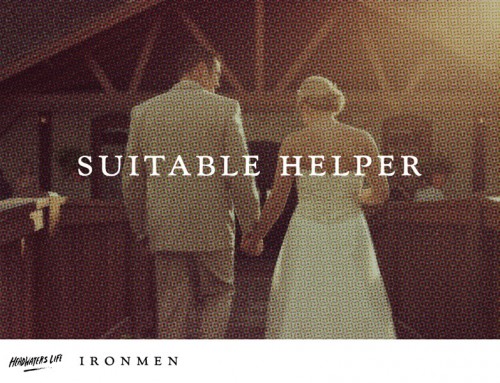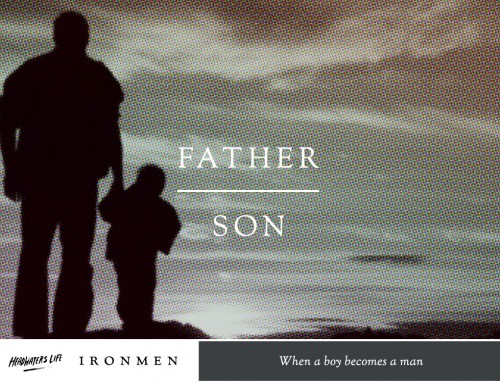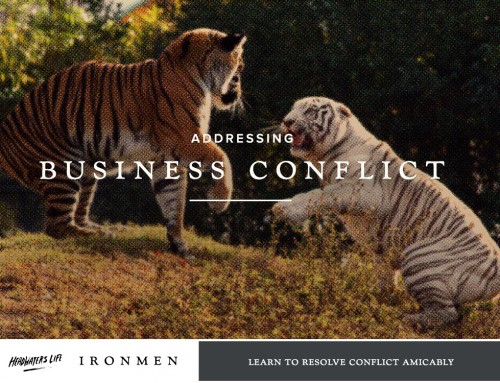I can think of nothing more dangerous to my health than addressing this topic. I feel like a conservative speaking at Berkeley. The hubris of the idea that I can summarize a woman’s needs in a page and a half is laughable. But here I go. Wish me luck.
With no data to support my thoughts other than my observations in life, I say that most women fall within a couple standard deviations of this idea (I say “standard deviation” with tongue in cheek) – Women need security. There are different kinds and varying levels of security which is what this Letter is about because you are the one who will be asked to supply said security. So you better know what the game is about.
Physical security is obviously paramount. One Christmas a long time ago, Lis said something to me in front of the kids that I interpreted as dishonoring and I went ballistic. I was irrationally angry. Lis reacted to my anger with some confrontation and I pushed her. Adrenaline-filled physicality is a dangerous thing. My push resulted in no physical damage to her whatsoever, but the strength of it caused her deep concern for her own security. I left for a while and when I returned, we fully discussed what happened, reconciled the misunderstanding, and came back together. But, and a big but, I was capable of being THAT guy. Since that time, I’ve grown up to the point where nothing relationally gets me upset. Nothing. Maturity, in general, is such that you respond to stimuli relative to who you are inside instead of react to circumstances that don’t suit your ego. The locus of control is internal instead of external. I matured that day and Lis has ever since felt physically secure in our relationship.
Emotional security in a relationship at its core is about power sharing and trust. Each person has a role to play to develop a life together and gain efficiencies. In that role you are expected to take ownership and therefore initiate action, i.e. lead, and are entrusted to consider what is best for the relationship versus just the individual. Once roles are established, often along traditional and gender lines, power is gained through specialization. My role was to go out into the marketplace and figure out how to make money and bring it home. Lis’ role was to manage the household and take the tactical lead with the kids. Each of us trusted one another to subordinate our individual urges to our relational health. So I didn’t go to the movies at lunch or take Saturdays to play golf. Lis didn’t squander family finances on shoes and kids’ events nor did she try to gain prominence in the kid’s love. She never talked poorly of me to the kids. With power comes ability to use or misuse. Therefore to misuse power in order to gain the upper hand is to manipulate, deflect, lie, and act selfishly. Any sustained action that highlights the self over the relationship violates the implicit agreement, loosens the bonds of trust, and creates a state of emotional insecurity. Clearly, it’s not simple. A man that excessively spends time at work can rationalize that he does so for the family. A woman that does not bring her whole being to the sexual relationship can easily point to a dozen reasons for not doing so. These two examples are grey examples in the dynamic of relational ill health where emotional security is weak.
Relational security answers the question: “How are we doing?” or “I”m happy with us. How about you?”. The answer that says: “I told you I loved you when we got married. If it changes, I’ll let you know!” somehow just doesn’t quite satisfy relational security. Silence is deadly to relationships because it violates security needs. Words, actions, touches, gifts, and time together are all forms of relational engagement. There has to be a good mix of all the love languages for a woman to feel relationally secure. A man too. It wasn’t until Lis and I got this part right that our relationship went from a 7 to a 10. It was good, but not great. I didn’t need sex every day. I needed Lis to touch me as she walked by me. I didn’t need her to say “I love you” constantly, I needed her to say “I am proud to be your wife.” Those were my relational needs. As for Lis, she needed me to notice what was important to her and engage her there. Yes, she liked it when I said she was pretty and that I loved her, but what affected her feeling of security was when I helped around the house, played with the kids, spent time one on one with her, and led the family strategically. The difference between a 7 marriage and a 10 marriage is the difference between a glass half full and a cup that runneth over.
A woman that feels secure physically, emotionally, and relationally is a woman that can risk pouring herself out fully. But there’s more, of course there’s more. Next week: Psychological and Spiritual Security.
To your abundant life with a woman.
Dave Marr
Get an encouraging letter each week to provoke your thinking.
Every Friday you'll get a short reflection on life intended to get you to think about things a little differently.
Subscribe to Ironmen





